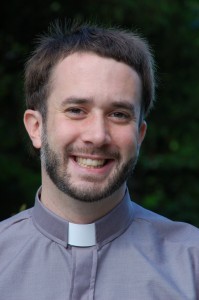MARY VOYTEK
"It's never too soon to engage a community. NASA has mostly had experience with engineers and scientists. We've chosen to reach out to places like [the Center of Theological Inquiry] CTI where your philosophy is to bring interdisciplinary groups together to talk about these very important questions. We tend to try to go to the best." -- Mary Voytek, NASA Astrobiology Program Director (Click Here to Listen: Voytek podcast with CTI Director)
"Astrobiology doesn't exist, what are its laws?" -- Jerry Fodor
At a meeting last May in New York with Andrew Pohorille, NASA's senior-most scientist on origins of life, Pohorille told me that there is a certain factor to life that so far cannot be captured in the lab, i.e., life is not purely a technical matter, and that he does not expect "we" will find life anywhere else in the solar system, including Mars -- he added that there is as yet no consensus on what life is. But what Andrew Pohorille did not tell me at the time was that just a few days prior to our meeting, NASA's Astrobiology Program -- headed by Mary Voytek -- awarded $1.108M (5% of its annual budget) to the Center of Theological Inquiry, a religious think tank with more than $23M in assets, to investigate how the world's religions might respond to the discovery of life on other planets. John Templeton Foundation is co-sponsoring the two-year project (2015-2017) with a $1.7M grant to CTI.
The attempt by Templeton to insinuate its divine motive into science is aided by the failure of science to understand the origin and evolution of life. Templeton funds many projects in these two areas seemingly not to find answers but to factor in religion. Templeton's science and religion director Paul Wason has refused my request for an interview to discuss these matters.
CTI is a Princeton-based nonprofit corporation that does advanced theological research. It was spun out of, and continues to work in close association with, Princeton Theological Seminary -- America's largest Presbyterian seminary. CTI's academic advisory panel and board of trustees are mostly Christian scholars and/or advocates (a couple of trustees are also wealth management professionals). Ganesh followers are not principal investigators in the NASA-JTF project as far as I can tell. . .
Each of the 24 research fellows participating in CTI's astrobiology inquiry is being paid $70K a year from the joint award to CTI. The 2016-2017 team will soon take up the challenge following the investigations of the 2015-2016 team. The first of the 2016-2017 team to announce his NASA/JTF/CTI astrobiology fellowship online that I've noticed is Jesus College's Rev. Dr. Tim Jenkins, Assistant Director of Research in the Study of Religion.
To give a sense of the moving ground, following a February 2016 astrobiology symposium at CTI that Frank Rosenzweig, principal investigator for NASA Astrobiology's University of Montana team, and another NAI astrobiologist participated in -- NASA's online newsletter reported this:
"Both [NAI] scholars are interested in learning about the origins of life by replicating evolutionary processes in the laboratory. Rosenzweig has undertaken research that seeks to study the process of evolution in such a way that history and contingency are controlled. In this way we can learn about not only what happened in the past but also what could have happened, but didn't. That helps us know more about what might be possible elsewhere in the universe."
More of NASA's astrobiology strategy for the next decade can be found in its latest roadmap: Astrobiology Strategy 2015. Lindsay Hays of California Institute of Technology's Jet Propulsion Laboratory is editor-in-chief.
Microbes are given some attention in a section titled: "How Does Our Ignorance About Microbial Life on Earth Hinder Our Understanding of the Limits to Life?" Curiously, however, there's not a word in the entire 256-page document (including the glossary) about the existence of viruses -- the biggest part of the biosphere -- let alone their consortial and persistent nature, when the new thinking in science is "virus first" and that persistence may be just as crucial to life as replication.
Templeton last year also awarded $5.4 M for origin of life investigations to the Foundation for Applied Molecular Evolution, with funds being administered by FAME synthetic biologist Steve Benner (who once quipped, "If you don't have a theory of life, you can't find aliens -- unless they shoot you in the leg with a ray gun.") AND $5.6M to ELSI -- the Japanese government's earth science institute in Tokyo - for its ELSI Origins Network, headed by astrophysicist Piet Hut also of the Institute for Advanced Study in Princeton.
Steve Benner is listed as a reviewer on NASA's latest roadmap and is on the editorial board of Astrobiology Journal whose senior editors include NAI's new chief Penny Boston as well as ISSOL (International Society for the Study of Origin of Life) president Dave Deamer.
Astrobiology Journal is put together in the Kennewick, Washington home of Sherry Cady, a geologist who serves as editor in chief, and her husband Lawrence P. Cady, a fiction writer who serves as the journal's managing editor and copy editor -- according to LP Cady. The magazine is one of 80 of Mary Ann Liebert Inc.'s "authoritative" journals and has close ties to other NASA-funded scientists who serve as reviewers.
If anything substantive is likely to happen as a result of (or in spite of) Templeton funding on origin of life, I would expect it to come from Steve Benner's project, which includes people like George E. Fox who collaborated early on with Carl Woese on Archaea, and Harry Lonsdale origin of life research funds recipient, Niles Lehman -- plus Benner himself and eight others.
On the other hand, I have serious reservations about the NASA award of $1.1M of public funds to CTI. What ever happened to the separation of church and state?
One of the 2015-2016 CTI recipients of NASA-Templeton funds is Lucas Mix, an Episcopalian priest who belongs to an organization called the Society of Ordained Scientists. He is also a member of CTI.

LUCAS MIX
Mix was editor-in-chief of Astrobiology Journal's 2006: Astrobiology Primer, an 81-page insert in the journal that referred to natural selection as the prime mover of evolution (Sherry & Lawrence Cady were the journal's editor and managing editor at the time.).
Mix is also a lead author of NASA's Astrobiology Strategy 2015 contributing a section in which he states: "The results of astrobiology research will have broad societal impact, affecting the way we think about life in the context of ethics, law, philosophy, theology, and a host of other issues."
I refer to Lucas Mix in my conversation with UCLA paleontologist Bruce Runnegar -- who was NAI chief at the time Mix's Astrobiology Primer got underway -- in my book The Altenberg 16: An Exposé of the Evolution Industry. I asked Bruce Runnegar about the Primer NAI supported on his watch:
"Suzan Mazur: The explanation for natural selection being promoted as the sole mechanism of evolution in that publication -- the decision about that would have been whose?
Bruce Runnegar: This is not a decision. The people who compiled that Primer are aiming to provide an educational service and so they write or wrote or acquired definitions of words. Basically trying to explain the jargon of astrobiology. Some of these explanations almost anybody could have different opinions about.
There were reviews of the document by scientists connected with the institute [NAI], but I don't think there's any attempt to provide a stamp of approval for any particular definitions."
To put this all in further context, following are excerpts of my February 2008 conversation with current CTI/NASA/Templeton investigator Lucas Mix:
Lucas Mix: The Primer came together over a six-year period. The first four years of that I was a student in biology at Harvard. The last two years of that I was a seminarian.
Suzan Mazur: This was a publication that was supported by NASA, although it's not an official publication of NASA. Do you know what the extent of funding was from NASA?
Lucas Mix: Well, I proposed the Primer to the NASA Astrobiology Institute as a way of promoting interdisciplinary education and as a joint activity of graduate students in astrobiology for their education and networking and career development. . . . I would say 2002, 2003 that NASA Astrobiology Institute became officially interested.
Suzan Mazur: There were 70 contributors, 10 editors. Were people paid to do this?
Lucas Mix: No. I was the only one who was paid and I was paid for a small amount of travel and to go to a couple of conferences and to do the editing and contacting people.
Suzan Mazur: How long did it take you to put the publication together?
Lucas Mix: The idea came about 2000. It appeared in print in November 2006. . . . Astrobiology Journal is put out by Mary Ann Liebert, Inc. . . . It's a peer reviewed journal and the Primer appears as an article in that journal.
Suzan Mazur: The big question is, regarding the discussion of evolution in the Primer, what's cited is that one of the features of life is "progressive adaptation via Darwinian evolution." But there's no mention of any other approach to evolution aside from Darwinian selection. With all the breaking news about alternative evolutionary approaches, why wasn't there any room for alternatives?
Lucas Mix: To start with, it's important to recognize that the Primer is an attempt in 81 pages to summarize the background information of all of astrobiology and that what happened was that we solicited input as to what needed to be in the document and then we tried to edit draconianly short descriptions of topics. So the evolution section really is meant to give only the most introductory of remarks about evolution.
Suzan Mazur: But it was introduced in a dogmatic way regarding Darwin. I mean, this is it. This is the way it is.
Lucas Mix: That was not my impression.
Suzan Mazur: But nothing else was offered.
Lucas Mix: A great deal of work was done to ensure that it talked about neutral selection.
Suzan Mazur: There was nothing about self-organization, for instance, in your Primer.
Lucas Mix: Well, there are certain areas in the Primer that were not as full as they could have been. And one of the benefits of doing another version of the Primer, an online version of the Primer, as I hope occurs -- is that some of those gaps will be filled in. I can't say without sitting down with it and the writers what exactly I feel should or should not have been in that section. But definitely overall I'm happy to say that there are things we left out.
Suzan Mazur: Is that information going in another version?
Lucas Mix: Well, I think that would have to be a discussion between whoever the editors are and whoever the author of that section is. Evolution is not an uncontroversial topic, at least in terms of how it's presented and what you see is the result of a year's worth of writing and researching and editing. So I wouldn't wish to comment on what another year's worth of writing, researching and editing might bring.
Suzan Mazur: Are you still involved with the project?
Lucas Mix: At present there is not officially any project. It is quite possible that Mary Ann Liebert will release updates or a second version of the Primer at some point in the future. We talked about it. It's probably not something that will happen in the next 12 months. . . .
Suzan Mazur: You're an Episcopalian minister now. I spoke to Reverend Dan Conklin the other day and he said yours was an emerging congregation.
Lucas Mix: Yes.
Suzan Mazur: Meaning that you don't have a space yet or it's an experimental type of church?
Lucas Mix: Experimental is a very good way to describe it. The "emerging church" is a movement that recognizes some of the long-time practices and doctrines of the church should be revisioned and because it is emerging, it is to some extent experimental, the direction which they will emerge and what will emerge is not fully determined.
Suzan Mazur: Did you participate yesterday? Did they have the Darwin on Sunday at Epiphany parish?
Lucas Mix: I preached at Epiphany Parish.
Suzan Mazur: Rev. Conklin mentioned that you've had this program four years in a row. He said that the discussion does get thrown open to things like various challenges to Darwinian natural selection. Did you noticed any of that? Did that happen yesterday? Was there any dissent? . . . .
Lucas Mix: Not too much. I would come back to the difference between positive selection and neutral selection. I don't think that Darwin had the concept of modern statistics that is so essential to the way evolutionary theory is conceived of these days. So I'm very uncomfortable saying that I'm in the school of Darwin and I do think the questions of probability and the word random that gets used in a number of ways are very much issues today in the popular conception of evolution.
Suzan Mazur: One of the reasons why self-organization was excluded from the Primer was not because of any religious affiliation that you might have?
Lucas Mix: By no means. The Primer should have no religious content. I certainly hope that it does not. I can't guarantee that nothing has snuck in, but. . .
Suzan Mazur: You're still doing the martial arts?
Lucas Mix: Yes. I work with Enso Center for International Arts. That's a family business. And I should probably mention that I am currently working on a book for Harvard Press called the Astrobiological World, which will be a much more accessible entrance into the world of astrobiology and will contain information about the interaction of religion and science.
Suzan Mazur: And when is your book coming out?
Lucas Mix: My expectation is February or March 2009. . . .
Religion has nothing to do with science and the NASA Astrobiology Program has squandered precious public funds -- 5% of its annual budget -- for an investigation into how the world's religions might respond to the discovery of life on other planets. It has handed over $1.108M to a religious think tank, a nonprofit corporation with wealth management professionals on its board that already has in excess of $23M in assets. It is money that could be spent productively on authentic journalism to more effectively expose the politics that drives world disasters, including the use of group mind control, religious and otherwise.


